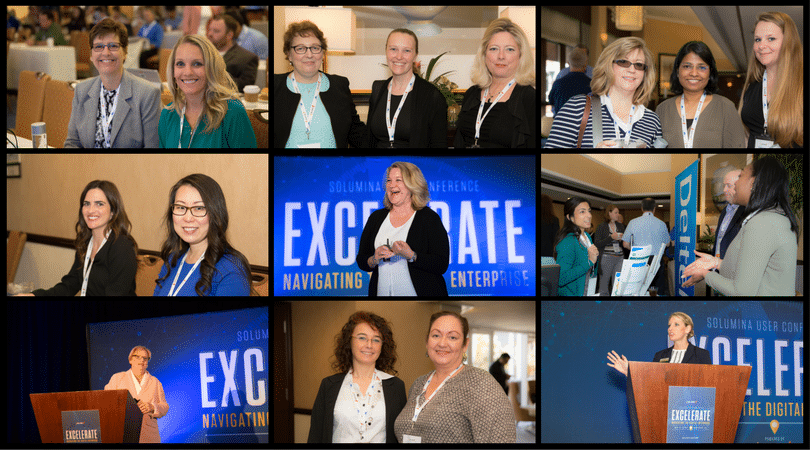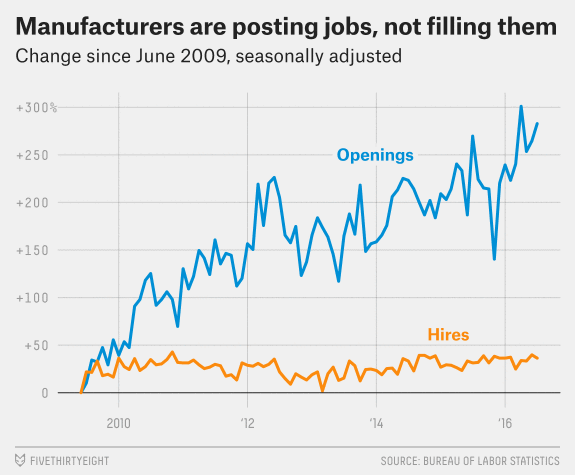The solution to the talent shortage occurring across the manufacturing industry is to turn toward the talents of women in complex manufacturing. According to the U.S. Labor Department, the number of open manufacturing jobs has been rising since 2009, and we are now seeing the highest level of talent shortages in complex manufacturing in the last 16 years.
The talent shortage is partly due to the rise of Smart Manufacturing and the Internet of Things (IoT), wherein manufacturing jobs have become much more technical, and many workers haven’t been able to keep up. The result is that many complex discrete manufacturing companies are left with a shortage of qualified applicants for open positions. It seems like a dire situation, but there is one source of untapped talent that could help to mitigate the negative effects of open jobs in complex manufacturing – women.
Women in Manufacturing: Statistics
Women make up about 47 percent of the labor force and only 27 percent of the manufacturing workforce. According to the 2015 Women in Manufacturing Study, women are underrepresented in the workforce across all manufacturing sectors in the United States. Another study from Deloitte and the Manufacturing Institute cited the perception of a “male-favored culture” as a key driver of women’s underrepresentation in the industry. Because of this, “The proportion of women in leadership roles in manufacturing companies lags behind other U.S. industries,” the study says.
Fortunately, as the manufacturing industry becomes more focused on the Digital Thread, and other technology-driven advancements in the way we make things, outdated views of manufacturing jobs are beginning to fade, and women are beginning to fill the gaps.
Women in Complex Manufacturing: Leading by Example
At iBase-t, we are proud to say our company is led by our female CEO, Ladeira Poonian. Our team of experts on the Solumina Software suite is led by Becky Kelderman, whose prior experience includes her work with communications on the shop floor at Honeywell FM&T. Our longest tenure Senior Account Executive positions are held by women, nearly half of our senior level executives are women, and did we mention we hired a female Nuclear Manufacturing Engineer to help improve our implementation services?
While iBase-t is at the forefront of gender equality in our human resources practices, the real shining stars are our customers. We’re increasingly noticing women holding senior level positions within industry leading aerospace and nuclear manufacturing companies. This is no small feat. From General Manager positions at Lockheed Martin and PMO Manager at Textron Unmanned Systems to Senior Quality Engineer at Honeywell, our progressive customers are breaking the mold of what a traditional manufacturing company looks like.
While men have long dominated roles in the industry, we’re encouraged to see the growing number of women in complex manufacturing, and we’re convinced that increasing diversity from the shop floor to the top floor will help these companies continue to innovate and thrive. We’re also delighted to see organizations like, The Manufacturing Institute, encourage and recognize women making an impact in Science, Technology, Engineering and Production with their STEP Ahead program and annual awards. With the right encouragement, women can be the answer to the manufacturing industry’s labor shortage and skills gap.






